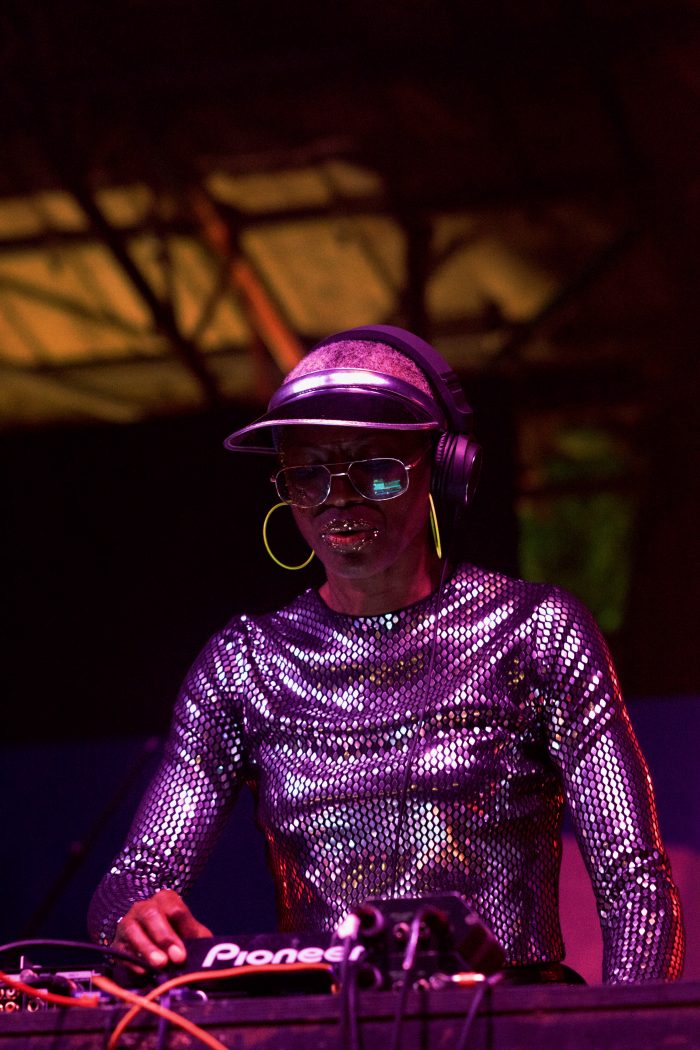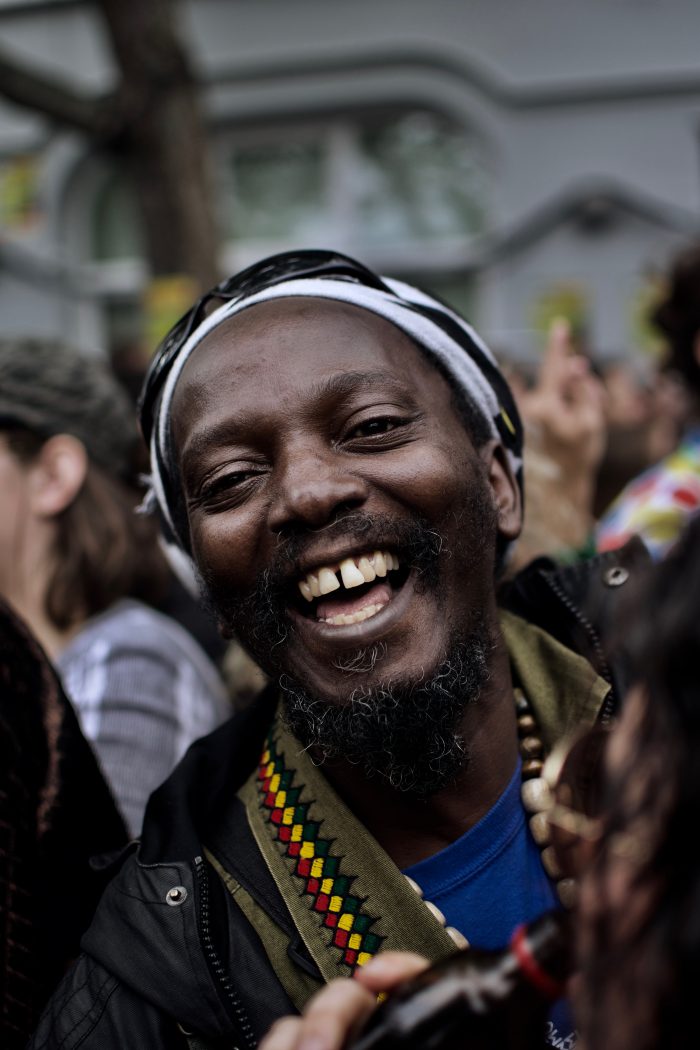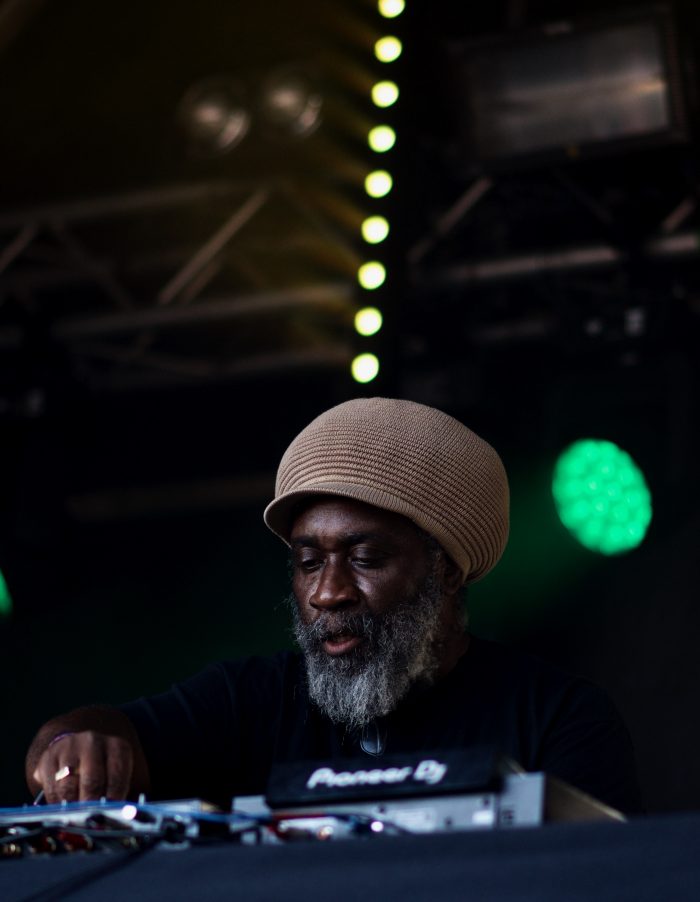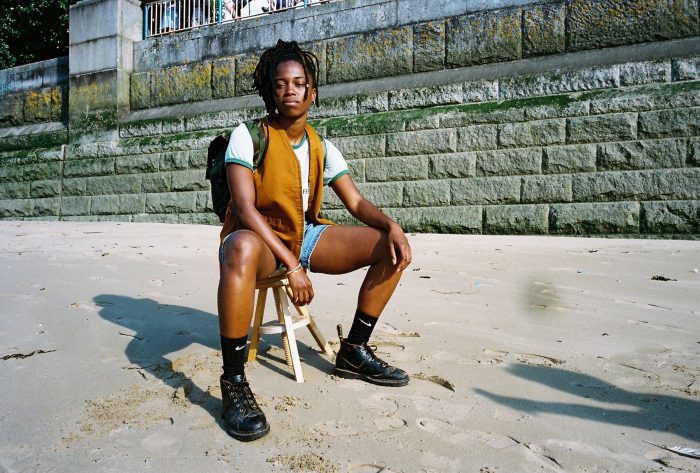Dancing is cultural currency. It’s a mutual exchange of energy, an opportunity to temporarily release inhibitions and a chance to connect with others through the language of movement. There’s no denying it’s one of the most potent ways to bond, and an opportunity for Black people to rightfully take up space with our bodies.

DJ Paulette. Photo Myah Jeffers
As someone who hasn’t always naturally gravitated towards the epicentre of the dance, often opting for the fringes including the smoking area at clubs or the drunken conversation room at house parties, I’ve had the distance to instead observe how dancing manifests itself in the bodies of others. This may have something to do with my photographer instincts of preferring to observe rather than participate.
This has also allowed me to be incredibly present and perceptive of how my own body reacts, on the occasion where the tunes are so sweet that I feel compelled to fully unleash on the dancefloor. These moments where I no longer have an awareness of my body, but instead a primal connection with the beat, are incredibly spiritual.
The thing that strikes me the most about the power of dance, particularly in Black spaces, is the bond that can be formed from responding to each other’s moves, the knowing screw face you make when the bass hits you in the chest and the synchronised hand in the air when a big tune drops.
“Placing my hands on my waist, arching my back and rolling my hips, I started wukking up and found myself in the middle of a dance circle, a space of protection formed by my friends. ”
As a 90s baby whose childhood and teenage years were nourished by dancing to soca and dancehall; and whose adult years have been peppered with the eclectic nature of the Black queer nightlife scene, the London experimental jazz scene and the festivals that cater to those subcultures, I’ve had the opportunity to observe how Black majority spaces can unlock pure unbridled joy in ways that can’t be replicated.
The first time I allowed myself to truly feel the electrifying and liberatory effects of dancing was when I was twelve at a school dance. I willed myself to move in the dimly lit school hall.
I wasn’t psyching myself up to just dance, I was preparing to “wuk up” and essentially emulate the sea of teenage girls that expertly moved their waistlines in perfect time to the beat. Placing my hands on my waist, arching my back and rolling my hips, I started wukking up and found myself in the middle of a dance circle, a space of protection formed by my friends. This was all the affirmation my little twelve-year-old self needed and was my introduction to experiencing the transformative power of communal dancing.
“I naively begged the DJ to play some of the latest soca tunes, selfishly so that I could dance. After being swiftly shut down, I instantly understood the political nature of the dancefloor.”

Photo Myah Jeffers
The summer I turned eighteen I began to understand that soca was the music of liberation and its sole job was to conjure up feelings of affirmation, celebration, Black joy and release.
I spent Barbados’ Crop Over season (our annual celebration that derived from the end of harvest during slavery) partying the equivalent of a double work shift; attending at least two, occasionally three soca parties a day.
For an entire musical genre to exist for the main purpose of uplifting a people, who have experienced such historical hardship, is revolutionary.
Moving to this music is sacred and a utopian escape from the political and social burden we experience as Black people. There are no limits in this realm. It’s transcendental.
This was such a stark juxtaposition to the Oceana-esque clubs I attended the following autumn, as a university fresher in Leeds. I was overcome with a strong sense of carnival tabanca.
Struggling with being one of very few Black people at university and no longer being able to cope with the electronic pop music that pumped through the speakers, I waded through the sweaty, sticky dancefloor filled with drunk freshers, to the DJ booth. I naively begged the DJ to play some of the latest soca tunes, selfishly so that I could dance. After being swiftly shut down, I instantly understood the political nature of the dancefloor.
“Many of us are yearning the dance floor, as these are spaces that play a crucial role in the unspoken intimate connection with others. ”

Channel One. Photo Myah Jeffers
It took me years to reexperience the feeling of liberation and joy that comes from partying in majority Black spaces (big love to movements like Touching Bass and BBZ).
However, most of us haven’t experienced this sense of liberation for an excruciatingly long time due to the pandemic. Many of us are yearning the dance floor, as these are spaces that play a crucial role in the unspoken intimate connection with others. This is needed now more than ever. I’ve become intrigued by how we can still access the spiritual joy and intimacy that dancing can provide us, whilst adhering to this new socially distanced way of living.
If you’re reading this and can relate to this sense of yearning, I implore you to carve out five minutes today to blast a song that makes you feel full and allow your body to move fluidly.
Imagine you’re in a room with other people, whose bodies are contracting and expanding in magical ways.
Imagine the bass of a sound system pulsating through your body.
Allow yourself to release.
Listen to Myah Jeffer's playlist +
This selection of songs have all in some way provided me with joy, healing and reflection during these past tumultuous months.
About Myah Jeffers +

Myah Jeffers is a Barbadian-British documentary and portrait photographer, dramaturg and director, living and working in London. She is currently the Literary Associate at The Royal Court and the 2019 Portrait of Britain winner. Her work in both theatre and photography is focused on Black experiences and aims to use portraiture to illuminate Black and queer joy as acts of resistance.
